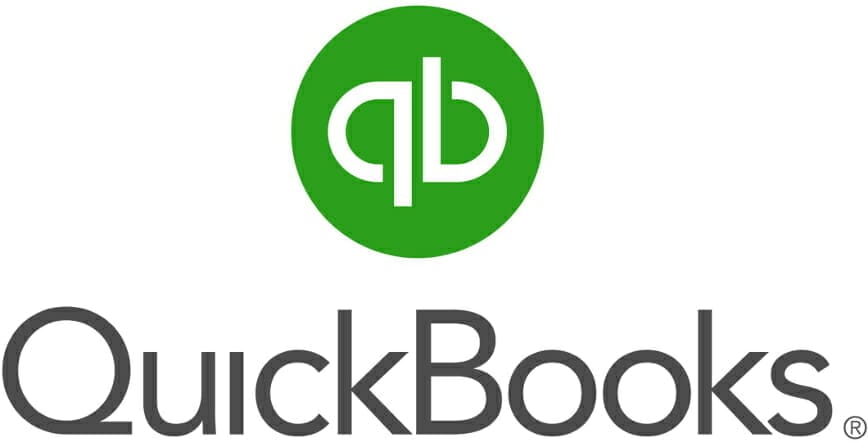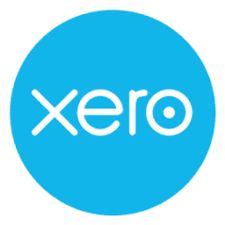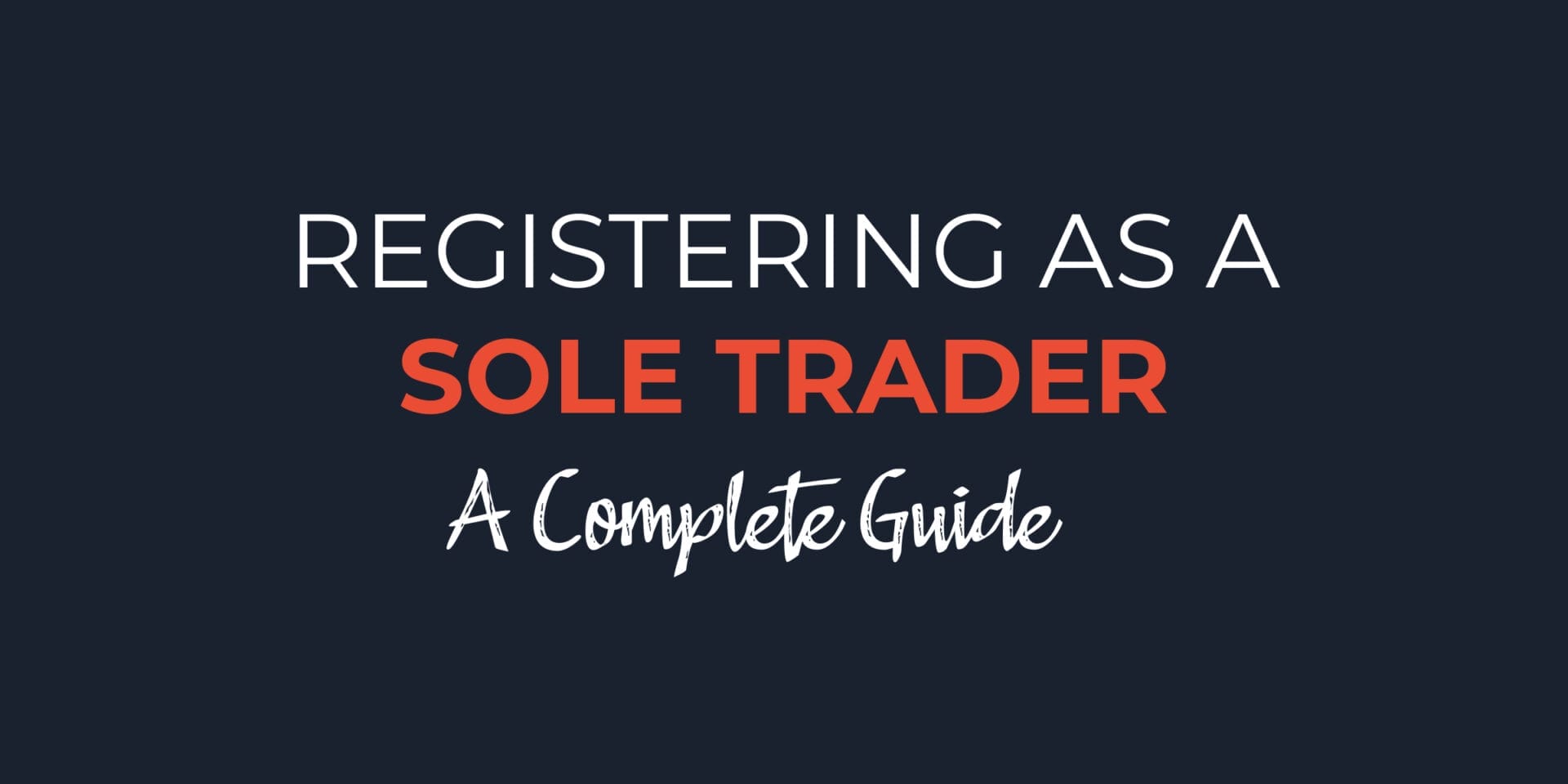Choosing the right business structure is one of the most important decisions you’ll make when starting or growing your business. The structure you select affects your tax obligations, personal liability, paperwork requirements, and how you take money out of your business. This article explores the two most common business structures in the UK – sole trader and limited company – to help you make an informed decision that best suits your business needs and future goals.
What is a Sole Trader?
A sole trader is the simplest business structure available in the UK. As a sole trader, you and your business are considered the same legal entity. This means you have complete control over your business operations and keep all the profits after tax. Despite what the name suggests, sole traders can hire employees – the term refers to the business structure rather than working alone.
When you operate as a sole trader, you personally take on the financial responsibility for your business. Any debts or liabilities your business incurs become your personal responsibility, and you must pay them even if your business fails. This unlimited liability is one of the main considerations when deciding whether to operate as a sole trader.
Benefits of Being a Sole Trader
Operating as a sole trader offers several advantages that make it an attractive option for many entrepreneurs, especially those just starting their business journey:
Simple Setup Process
Becoming a sole trader requires minimal paperwork and no registration fees. You simply need to inform HMRC that you’re self-employed and register for Self Assessment. This simplicity makes it an accessible option for those wanting to start a business quickly with minimal bureaucracy.
Less Complex Accounting
The accounting requirements for sole traders are less complicated than those for limited companies. You don’t need to prepare formal annual accounts or submit a Corporation Tax return. However, you still need to:
- Keep records of your business income and expenses
- Complete an annual Self Assessment tax return
- Pay Income Tax and National Insurance on your profits
Complete Control
As a sole trader, you make all the business decisions without needing to consult with directors or shareholders. This gives you the freedom to develop your business according to your vision and respond quickly to opportunities.
Operational Flexibility
You can adapt quickly to changing market conditions or customer needs without going through formal approval processes. This agility can be a significant advantage in competitive or rapidly evolving industries.
Low Startup Costs
Starting as a sole trader typically requires minimal capital. While you might need funds for equipment or inventory depending on your business type, the legal formation itself doesn’t come with fees.
Financial Privacy
Unlike limited companies, sole traders aren’t required to publish their financial information. This means your business finances remain private, potentially giving you a competitive advantage as competitors can’t easily see how your business is performing.
Profit Retention
All profits from your business belong to you after tax, without needing to share with other shareholders or leave profits in the business.
Easier Transition
If you’re starting a business part-time alongside employment, operating as a sole trader often feels less formal and may be easier to explain to your current employer than forming a limited company. Learn more about registering as a Sole Trader with our guide.
What is a Limited Company?
A limited company is a type of business structure that exists as a separate legal entity from its owners. This means the company has its own legal identity distinct from the people who own or run it. In the UK, all limited companies must be incorporated at Companies House and given a unique company registration number. The company must have either “Ltd” or “Limited” at the end of its name.
The most common type for small businesses is a private limited company (Ltd), as opposed to a public limited company (PLC) which can sell shares to the public.
Understanding Limited Liability
The defining characteristic of a limited company is limited liability. This means that the company’s finances are separate from the personal finances of its owners. If the company incurs debts or faces legal claims, the shareholders’ personal assets are protected.
Unless there is fraud or other serious wrongdoing, the amount the owners have to lose if the company fails is strictly limited to:
- The nominal value of the shares they hold
- Any amounts they’ve already invested into the limited company
- The amount of any personal guarantee they’ve made to the company
This protection is a significant advantage over sole trader status, where business debts can put your personal assets at risk.
Benefits of Operating as a Limited Company
Limited companies offer several advantages that make them attractive to business owners looking for growth, protection, and tax efficiency:
Limited Liability Protection
The primary advantage of a limited company is that it separates your personal finances from your business. This limits your personal risk if the business faces financial difficulties or legal issues.
Professional Image
Having “Ltd” or “Limited” after your business name often creates a perception of credibility and permanence. Some clients, particularly larger businesses, prefer to work with limited companies rather than sole traders.
Tax Efficiency
Limited companies can be more tax-efficient than operating as a sole trader. As a company director, you can take money out of the business through a combination of salary and dividends, which can result in lower tax payments overall.
Dividend income up to the dividend allowance threshold (currently £500) is tax-free. Dividend income over this threshold is taxed at lower rates than regular income:
- 8.75% for basic rate taxpayers
- 33.75% for higher rate taxpayers
- 39.35% for additional rate taxpayers
Additionally, no National Insurance contributions are payable on dividend income, further enhancing tax efficiency.
Wider Options for Raising Capital
Limited companies have more options for raising funds compared to sole traders. They can issue shares to investors or secure business loans more easily, which can be crucial for growth.
Ownership Transfer
With a limited company, it’s relatively easy to bring other people into ownership of the business by issuing or transferring shares. If you want to exit the business, you can sell your shares to someone willing to purchase them.
Perpetual Existence
A limited company continues to exist regardless of changes in ownership or the death of shareholders. This continuity can make it easier to sell the business or pass it on to family members.
Disadvantages of a Limited Company
While limited companies offer many benefits, they also come with some drawbacks that you should consider:
Additional Reporting Requirements
Limited companies must file annual accounts and a confirmation statement with Companies House. These documents are publicly available, meaning anyone can access information about your company’s financial performance.
More Complex Accounting
The accounting and taxation requirements for limited companies are more complex than for sole traders. You’ll need to prepare formal annual accounts, file a Corporation Tax return, and manage payroll if you have employees.
Higher Costs
Due to the increased complexity and reporting requirements, running a limited company often involves higher accountancy and administrative costs than operating as a sole trader.
Less Privacy
Information about the company, including details of directors, shareholders, and people with significant control over the company, is available on the public record at Companies House.
Potential Conflicts
If directors and shareholders are different people, they may have competing visions about the best direction for the company, which can lead to conflicts.
Taxation Differences: Sole Trader vs Limited Company
Sole Trader Taxation
As a sole trader, you pay:
- Income Tax on your business profits (after expenses)
- Class 2 and Class 4 National Insurance contributions
- You claim expenses directly against your income
Your profits are taxed at the standard income tax rates:
- Personal allowance (currently £12,570): 0%
- Basic rate (£12,571 to £50,270): 20%
- Higher rate (£50,271 to £125,140): 40%
- Additional rate (over £125,140): 45%
Limited Company Taxation
A limited company pays:
- Corporation Tax on its profits (currently 25% for profits over £250,000, with a tapered rate for profits between £50,000 and £250,000, and 19% for profits under £50,000)
As a director-shareholder, you can take money out as:
- Salary (subject to Income Tax and National Insurance)
- Dividends (subject to Dividend Tax, but not National Insurance)
This combination often results in a lower overall tax bill compared to sole trader status, especially once profits exceed around £30,000 per year.
The Annual Tax Fitness Check
It’s advisable for all sole traders to conduct a “tax fitness check” at least once a year. This involves comparing your current tax situation as a sole trader with what it would look like if you operated as a limited company.
The check helps you determine if switching business structures would be financially beneficial based on:
- Your current and projected profits
- How much you need to take out of the business
- Your plans for reinvestment
- Your personal tax circumstances
As your business grows and evolves, the most tax-efficient structure may change. What works well when you’re starting out might not be optimal as your business expands and becomes more profitable.
When to Consider Switching from Sole Trader to Limited Company
Several indicators suggest it might be time to consider incorporating your sole trader business:
Financial Indicators
- Your profits exceed £30,000-£40,000 annually (the exact threshold depends on your specific circumstances)
- You’re consistently paying higher rate income tax as a sole trader
- You don’t need to withdraw all profits for personal use
Business Development Indicators
- You’re taking on larger contracts with bigger clients
- You’re exposed to higher levels of business risk
- You’re planning significant business growth
- You’re considering bringing in business partners
- You’re planning to sell the business in the future
Practical Considerations
- You’re concerned about personal liability
- Clients prefer to work with limited companies
- You need to project a more established business image
How to Set Up a Limited Company
Setting up a limited company is straightforward but requires more steps than registering as a sole trader:
- Choose a company name (must be unique and not too similar to existing companies)
- Decide on company directors and shareholders
- Prepare documents including:
- Memorandum of Association (statement of intent to form the company)
- Articles of Association (rules about how the company will be run)
- Register the company with Companies House (can be done online for £12)
While you can handle the registration process yourself, many entrepreneurs opt to use a formation agent who can complete the process quickly and ensure all requirements are met correctly.
Here the best UK Company Registration: https://moneyzoe.com/company-formation/best-uk-company-registration/
When setting up your company, consider the following:
- Keep share capital simple – you can start with as little as one share at £1
- Avoid setting up large amounts of share capital (such as 1,000 shares at £1) as this money will be tied up in the business
- Consider whether you need additional directors or shareholders
- Set up a separate business bank account for your company
For more information you may read our guide “How to Open a Limited Company in the UK: A Step-by-Step Guide”
Best Company Registration Services in the UK
When establishing a limited company in the UK, using a professional formation service can significantly streamline the registration process. These services not only handle the necessary paperwork with Companies House but often provide valuable additional support for new business owners. Here are some of the most reputable company registration services in the UK:
1st Formations stands out as one of the UK’s leading company formation agents, consistently receiving high ratings for their customer support and service quality. They offer several packages starting from just £12.99 for their basic digital option, with more comprehensive packages including registered office addresses in London’s prestigious Covent Garden area. Their registration process is remarkably efficient, with most applications processed within three hours.
The service provides a user-friendly online application system and transparent fee structure that clearly outlines all costs involved. For businesses requiring additional support, they offer services such as address facilities, company secretary services, and assistance with annual confirmation statements.
Rapid Formations delivers on its name with quick and efficient company registration services. They offer competitive pricing with comprehensive packages that include essential post-registration support. Their standard formation package includes digital company documents, while advanced packages provide additional benefits like London registered office addresses and assistance with confirmation statements.
What sets Rapid Formations apart is their attention to detail and commitment to customer satisfaction. Their support team guides clients through the formation process, helping to ensure all legal requirements are properly met and documentation is correctly filed with Companies House.
Your Company Formations combines efficient company registration with exceptional ongoing support. Based in London’s City Road EC1, they offer prestigious business addresses that can enhance your company’s professional image while providing privacy protection for directors and shareholders.
Their service stands out for its personalized approach to customer support, with dedicated specialists assigned to handle queries and provide guidance. They also offer a range of post-registration services, including mail forwarding, corporate secretarial assistance, and compliance support, making them a good choice for entrepreneurs looking for a long-term partnership rather than just initial formation.
Tide
Tide offers a unique approach to company formation by combining business registration with free business banking services. This integration provides a seamless experience for new business owners who need both a registered company and a functional business account.
Their company formation service is straightforward, with the added benefit of immediate access to a business account once your company is registered. Tide also provides additional tools for managing invoices, tracking expenses, and connecting with accounting software, making it an attractive option for entrepreneurs who want a complete startup solution rather than just company registration.
When selecting a company formation service, consider the following factors:
- Processing Time: How quickly do you need your company to be registered?
- Additional Services: Do you require a registered office address, mail forwarding, or ongoing compliance support?
- Customer Support: What level of guidance will you need throughout the process?
- Pricing Structure: Are all costs transparent, with no hidden fees?
- Reputation: What do other customers say about their experience with the service?
Most formation agents offer electronic submission to Companies House, which is significantly faster than paper applications. The right service for you will depend on your specific business needs, budget, and how much ongoing support you anticipate requiring as your company grows.
For entrepreneurs who are uncertain about whether to establish a limited company or operate as a sole trader, these formation services can also provide valuable guidance on the pros and cons of each business structure, helping you make an informed decision based on your specific circumstances.
How to Switch from Limited Company to Sole Trader
If circumstances change and operating as a sole trader becomes more appropriate for your business, you can make the switch. However, this involves formally closing your limited company and starting afresh as a sole trader.
To close a company:
- Ensure company accounts and tax returns are up to date
- Complete a DS01 form from Companies House
- The company must not have traded for the past three months
- Its name must not have changed within the past three months
- It must not be subject to any legal proceedings
- You must not have made a disposal for value of property or rights
You can register as a sole trader by calling HMRC or registering online. The trading name can be carried over into the new business, minus the word “limited.”
If your company has debts, the process is more complex, and you should seek advice from a qualified accountant.
Making the Right Choice for Your Business
There’s no one-size-fits-all answer to whether you should operate as a sole trader or limited company. The right structure depends on your specific circumstances, including:
- Your current and expected profit levels
- How much risk your business faces
- Your plans for growth
- How you want to take money out of the business
- Your personal financial situation
- The image you want to project to clients
For many businesses, starting as a sole trader and then incorporating as the business grows and becomes more profitable is a sensible approach. This allows you to begin with minimal administrative burden and then gain the benefits of limited liability and tax efficiency when they become more valuable.
Seeking Professional Advice
While this guide provides a comprehensive overview of sole trader and limited company structures, tax regulations and business requirements change regularly. Before making your decision, it’s wise to consult with a qualified accountant who can provide advice tailored to your specific situation.
An accountant can:
- Analyze your specific financial situation
- Calculate the exact tax implications of each structure
- Help you understand the administrative requirements
- Advise on the timing of any switch between structures
- Ensure you remain compliant with all legal obligations
The small cost of professional advice often pays for itself many times over through tax savings and avoiding costly mistakes.
Best Free Business Account for Small Business
For sole traders, a dedicated business bank account isn’t a legal requirement (unlike limited companies), but it substantially improves financial organization. A separate account creates a clear division between personal and business finances, simplifies tax reporting, and enhances your professional image with clients.
Tide Business Account
Tide offers a zero-fee business bank account that’s gained popularity among freelancers and self-employed individuals. Supporting more than a million businesses worldwide, Tide provides tools for invoice generation, expense management, accounting software integration, and administrative functions. Account holders benefit from FSCS security via Tide’s ClearBank partnership. Their usage-based pricing structure means you’re only charged small fees when making transactions, with premium plans available for additional functionality when your venture expands.
- Free Business Account – £0 monthly fee
- FSCS-Protected Bank Account by ClearBank
- Create and send invoices for free
- Deposit cash at PayPoint or Post Office branches
- Accounting and tax tools
ANNA Money Business Account
ANNA (which stands for Absolutely No Nonsense Admin) provides a business bank account specifically created for sole traders and micro-businesses. The service focuses on reducing everyday paperwork by combining payment processing, receipt organization, and tax submission in a single interface. ANNA delivers round-the-clock assistance with prompt responses through its messaging system. While the standard plan has no recurring fees, you’ll pay modest transaction charges when using services. Be aware that ANNA operates as a financial technology provider rather than a bank, so accounts lack FSCS protection.
- Free Business Account – £0 monthly fee, pay only for what you use
- Create invoices with QuickPay links
- Snap receipts and auto-categorise expenses
- Submit VAT returns via Excel or Google Sheets
- Share access with your accountant or sync software
Business Bank Account with a Small Monthly Fee
Countingup Business Account
Countingup presents a distinctive hybrid of business bank account and bookkeeping software tailored for sole traders. The platform features automated accounting, tax calculations, and continuous financial insights. Subscription costs vary based on monthly deposits, beginning at £3 monthly for smaller transaction volumes, and new users receive a three-month complimentary period. Countingup enables unlimited professional invoice creation, payment tracking, and direct sharing of financial data with your accountant.
- Monthly Fee from £3 to £18 with 3-month free trial
- Open your business account in minutes
- Contactless card with UK account number and sort code
- Built-in Accounting Software with real-time profit & loss
- Automatic expense categorisation and tax estimate tools
- Invoicing, billing, and receipt capture
- Easily share access with your accountant
Best Accounting Software compared
Good accounting software saves time, reduces errors, and helps ensure tax compliance. Here’s a comparison of the top options for sole traders:
QuickBooks
Price: From £10/month (often discounted for the first 6-12 months)
Who is it for?: Sole traders to large businesses
MTD-recognized?: Yes (Simple Start plan and above)
QuickBooks is one of the earliest cloud-based accounting software providers. For sole traders, even the basic plan helps with Self Assessment preparation and invoicing. As your business grows, higher-tier plans add features like VAT submission to HMRC and deadline reminders. The platform is customizable and includes an introductory guide.
- Prepare for Self Assessment
- Get Income Tax estimates
- Track CIS as a subcontractor
- Connect your bank
- Submit your VAT return to HMRC
- Get VAT deadline reminders and error-check your return
FreeAgent
Price: Free with certain bank accounts; from £19/month for sole traders; from £10/month for landlords **(Often discounted + 10% Off Lifetime with my special coupon code: **4ip82cra)
Who is it for?: Sole traders, small businesses, landlords, accountants
MTD-recognized?: Yes
FreeAgent targets freelancers and small businesses, focusing on daily tasks like invoicing, time tracking, and expense management. Its mobile app lets you handle bookkeeping on the go, including receipt photo uploads. Optional add-ons include Amazon account integration. FreeAgent is free if you bank with NatWest, Mettle, Royal Bank of Scotland, or Ulster Bank.
- Manage admin on the go with the dashboard and mobile app
- Send invoices, estimates, and accept one-click payments
- File VAT and Self Assessment returns directly to HMRC
- Track projects, time, and use Smart Capture Unlimited
- Connect your bank with smart categorisation and cashflow
- Get UK-based support and optional add-ons like Amazon
Xero
Price: From £16/month (often heavily discounted initially)
Who is it for?: Sole traders to large businesses
MTD-recognized?: Yes
Xero is a comprehensive cloud accounting solution that handles invoicing, inventory, payroll, and expense claims. It imports data from banks, credit cards, and PayPal, with an app for both iPhone and Android. Certain packages support MTD VAT submission to HMRC. Plans can add users as your business grows.
- Send invoices and quotes, and accept online payments
- Calculate and submit VAT returns directly to HMRC
- Track expenses and capture receipts with Hubdoc
- Connect your bank and reconcile transactions automatically
- Manage finances on the go with the Xero mobile app
- Access UK-based support and integrate with business apps
FreshBooks
Price: From £7.50/month (often discounted)
Who is it for?: Sole traders and small businesses
MTD-recognized?: Yes
FreshBooks is known for its user-friendly interface and clear, jargon-free approach. Designed for freelancers and small businesses with basic accounting needs, it focuses on invoicing and expense tracking. It integrates with PayPal, Zendesk, and other apps. A free trial is available, and all packages support MTD compliance with direct HMRC submission.
- Send unlimited invoices
- Set up recurring estimates and client retainers
- Send unlimited quotes and proposals
- Get paid with direct debit (per transaction fee capped at £4) and credit cards
- Automatically capture receipt data
- Invite your accountant
- Run financial and accounting reports
- Submit MTD-compliant VAT returns directly to HMRC
Sage
Price: Get 3 months free; From £15/month
Who is it for?: Sole traders to large businesses
MTD-recognized?: Yes (paid version)
Sage is a major enterprise software provider with cloud accounting options for small businesses. Sage Business Cloud Accounting helps with invoicing, cash flow, and payroll. As your business grows, you can add Sage HR or Payroll. For sole traders just starting out, Sage Accounting Individual Free offers basic income and expense management, receipt recording, and income tax summaries via a free mobile app, though this version isn’t MTD-compatible.
- Create and send unlimited sales invoices
- Track outstanding payments
- Simplify bank reconciliation
- Calculate and submit VAT returns
- Be Making Tax Digital (MTD) ready for VAT
- Manage and submit Construction Industry Scheme (CIS) returns
Zoho Books
Price: Free basic version; paid plans from £12/month
Who is it for?: Sole traders and small businesses
MTD-recognized?: In development
Zoho Books integrates with other Zoho apps and third-party tools. It supports invoicing, expense tracking, and inventory management. While it lacks UK payroll features, it connects to bank accounts for real-time cash flow updates. According to the government website, MTD compatibility is in development.
- Create invoices, quotes, expenses, and journals
- Track mileage and generate divisional reports
- Accept online payments and manage credits/refunds
- Enable customer portal and automate payment reminders
- Reconcile bank transactions and set up recurring invoices
- Track and file VAT returns, including MTD-compliant VAT
- Track CIS contractors and run financial reports (P&L, Balance Sheet)
- Connect bank feeds and set up recurring expenses
- Enable transaction period locking and add custom fields
- Create custom reports, journal templates, and use API access
Insurance Requirements and Risk Management
Running a business involves risks, and having proper insurance coverage is essential for protecting your finances regardless of your business structure. However, the type and importance of insurance differs significantly between sole traders and limited companies.
Essential Insurance for Sole Traders
As a sole trader, you lack the protection of limited liability, making appropriate insurance coverage particularly important. Without it, your personal assets could be at risk in the event of business-related claims or issues. Here are the key insurance types to consider:
Public Liability Insurance: This is vital if you interact with clients, customers, or the general public. It covers legal costs and compensation if someone is injured or their property is damaged because of your business activities. For example, if a customer slips in your shop or you accidentally damage a client’s property while working at their premises, this insurance would cover the associated costs.
Professional Indemnity Insurance: This protects you against claims from clients who suffer financial loss due to advice, services, or designs you’ve provided. It’s particularly important for consultants, designers, IT professionals, and others who provide professional services or advice. If a client claims your advice led to financial loss, this insurance would cover legal fees and compensation.
Personal Accident Insurance: As a sole trader, if you’re unable to work due to an accident, your income may stop immediately. Personal accident insurance provides financial support in these circumstances, offering a monetary benefit to help cover your living expenses and business overheads while you recover.
Business Equipment Insurance: This covers the cost of replacing or repairing essential business equipment if it’s damaged, lost, or stolen. For many sole traders, equipment like computers, tools, or specialized machinery is crucial to their ability to work, making this insurance important for business continuity.
Insurance for Limited Companies
Limited companies share many of the same insurance needs as sole traders, but with some additional considerations:
Directors and Officers Insurance: This protects company directors against claims of wrongful acts while managing the company. It covers legal costs and potential settlements if directors face allegations of breaching their duties, making errors in judgment, or other claims related to their role as company officers.
Employers’ Liability Insurance: This is a legal requirement for most businesses that employ staff, including limited companies with employees. It covers compensation claims if an employee becomes ill or is injured because of their work. The minimum coverage required by law is £5 million, and you can face significant fines for not having this insurance if you have employees.
Business Interruption Insurance: This provides financial support if your business operations are disrupted by events like floods, fires, or other disasters. It can cover lost income, fixed operating expenses, and additional costs incurred during the period your business cannot operate normally.
Cyber Insurance: With increasing digital threats, cyber insurance is becoming more important for businesses of all structures. It covers financial losses resulting from data breaches, system hacks, ransomware attacks, and similar cyber incidents.
Risk Assessment and Management
Beyond insurance, it’s important to implement proper risk management strategies:
For Sole Traders:
- Keep business and personal finances strictly separate
- Implement clear contracts with clients that limit your liability
- Build an emergency fund to cover unexpected business expenses
- Consider working with an accountant to ensure tax compliance
For Limited Companies:
- Ensure directors understand their legal duties and responsibilities
- Maintain accurate and up-to-date company records
- Implement clear corporate governance procedures
- Regularly review and update your risk management strategies
Legal Compliance and Reporting Requirements
The regulatory burden differs significantly between sole traders and limited companies, with limited companies facing more extensive compliance requirements.
Sole Trader Compliance
As a sole trader, you don’t need to register your business with Companies House, but you still have several important legal obligations:
HMRC Registration: You must register with HMRC as self-employed no later than October 5th of your second tax year of trading. Failure to register on time can result in penalties.
Record Keeping: You must maintain detailed financial records of all business income and expenses for at least 5 years. This includes sales receipts, purchase invoices, bank statements, and details of any business assets.
Self-Assessment Tax Returns: You must complete and submit an annual self-assessment tax return by January 31st each year (for online submissions) and pay any income tax and National Insurance contributions you owe.
VAT Registration: If your turnover exceeds the VAT threshold (currently £90,000), you must register for VAT and submit regular VAT returns. You can also register voluntarily if your turnover is below this amount.
Business Name Restrictions: If you choose to trade under a name other than your own, there are restrictions on what you can call your business. You cannot use terms like “Limited,” “Ltd,” “PLC,” or “LLP,” as these suggest a different business structure. Your business name also cannot be offensive or contain prescribed sensitive words without permission.
Health and Safety: You must ensure your business operations comply with health and safety regulations, especially if you have premises that customers visit or if you employ staff.
Limited Company Compliance
Limited companies face more extensive compliance requirements, reflecting their separate legal status:
Companies House Registration: You must register your company with Companies House, providing details of directors, shareholders, and your registered office address.
Confirmation Statement: You must submit an annual confirmation statement to Companies House, confirming that the information they hold about your company is correct.
Annual Accounts: You must prepare and file detailed financial statements according to specific accounting standards. These accounts are publicly available through Companies House.
Corporation Tax Return: You must file an annual Corporation Tax return with HMRC and pay any Corporation Tax due.
Statutory Records: You must maintain registers of directors, shareholders, persons with significant control, and other statutory information.
Director’s Duties: Directors have specific legal responsibilities under the Companies Act 2006, including acting in the best interests of the company, promoting the success of the company, and avoiding conflicts of interest.
Company Secretary: While not mandatory for all companies, having a company secretary can help ensure compliance with these various requirements.
Payroll and PAYE: If the company employs people (including directors who take a salary), you must operate PAYE and report to HMRC.
The greater compliance burden for limited companies is one reason why many small businesses start as sole traders, only incorporating as a limited company when the benefits of doing so (such as tax efficiency or limited liability) outweigh the additional administrative costs.
Conclusion
Choosing between sole trader and limited company status is a significant decision that affects many aspects of how you run your business. Both structures have their advantages and disadvantages, and what works best for one business may not be ideal for another.
The simplicity and low administrative burden of sole trader status make it attractive for new and small businesses. As your business grows, the limited liability protection and tax advantages of a limited company often become more valuable.
Remember to review your business structure regularly as part of your annual tax planning. As your business evolves, the optimal structure may change. By staying informed and seeking professional advice when needed, you can ensure your business operates under the structure that best supports your goals and circumstances.
Make this important decision based on a clear understanding of both options and how they align with your business needs, not just on what others are doing or what seems easiest in the short term.












